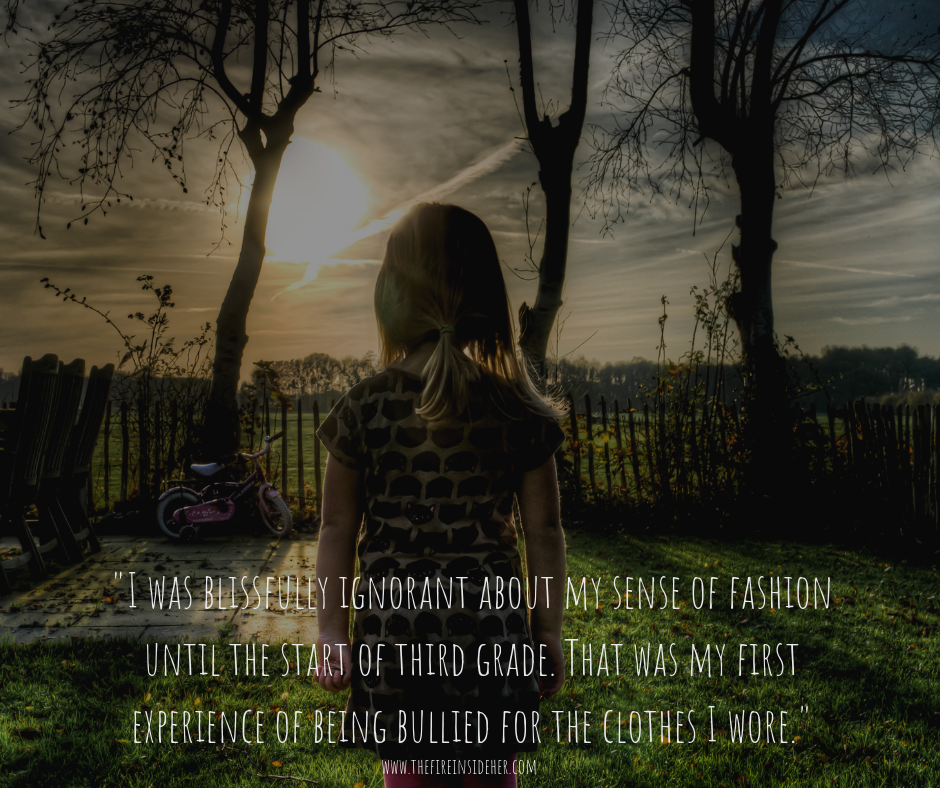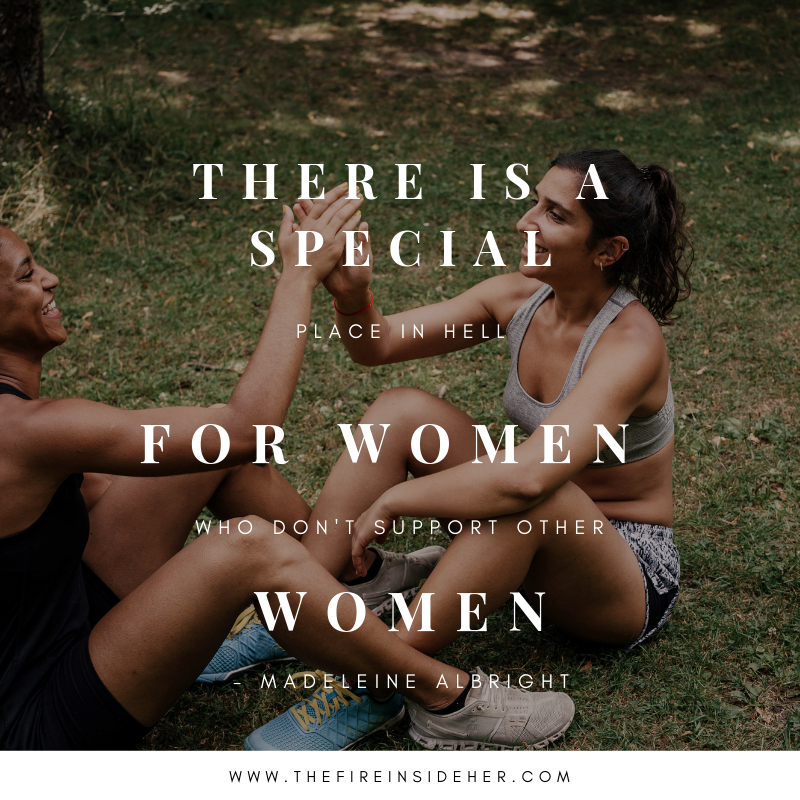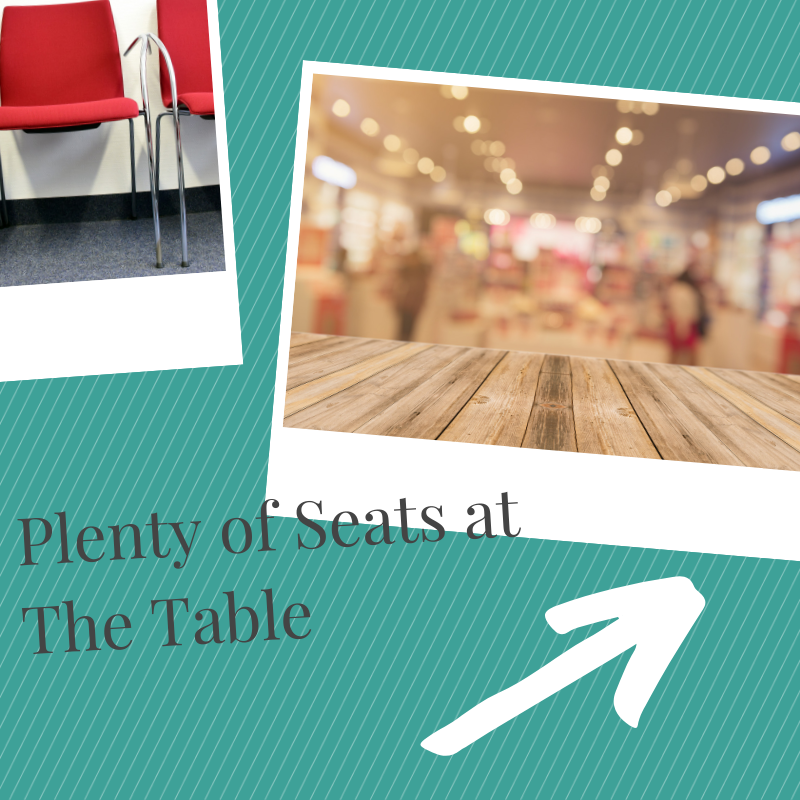There are Plenty of Seats at the Table; Grab One.
Women in the fire service have been competing for a perceived limited number of seats at the decision-making table for what seems like forever. Like some strange adult version of musical chairs, circling like vultures as we wait for the music to stop, this game feels real… and the strategy to win is cutthroat. However, underneath it all, the competition is simply for acceptance, and there are no winners. We spend so much time focusing on this supposed scarcity that we forget about the stacks of chairs against the wall right behind us.
I was a shy kid.
When I was young, I was perfectly content playing baseball with my little brother, spending time with my grandma, and dancing in the front yard. While I didn’t have many friends my age, I did have some pretty unique relationships with my grandma’s friends! I loved riding my bike to visit the older adults in the neighborhood; they always had tasty snacks and were interested in what was new in my life. Along with my fondness for older people, I have always had a thing for fashion, although I have no idea where my style came from. I didn’t have sisters, and my mom either made her clothes or rocked the double knit polyester.
I vividly remember my favorite outfit in second grade was a smurf shirt, jean skirt, and tan cowboy boots (don’t judge!). I attended Catholic school, but we didn’t have to wear uniforms, so I got creative and wore what I wanted. I was blissfully ignorant about my sense of fashion until the start of third grade. That was my first experience of being bullied for the clothes I wore.
I had the most beautiful pair of purple knee-high socks with rainbow hearts on them! I was so proud to wear them to school, but a few girls in my class didn’t share my style, and they quickly started to tease me. I honestly don’t recall many details, just that I didn’t understand why they cared about my socks and why they had to be mean. I also remember that the mean girls never let up all year long. I could do nothing right in their eyes. I was excluded, teased, and felt pretty bad about myself. But I didn’t tell anyone, and I had no idea that this would be only my first experience with mean girls.
Throughout my school years, I continued to have interactions with the mean girls. I even tried to be a mean girl myself: in fourth, I left a nasty message on one of my classmates’ answering machine. I got busted and felt terrible. Being a mean girl wasn’t for me.
As time went on, the names and faces changed, but mean girls were still mean.
Not all the girls I interacted with were mean, of course – I have collected an incredible tribe of women who are lifelong friends – but I realized that it was easier for me to get along with the boys. The boys weren’t exactly angels either, but it was different; it was somehow more comfortable to be teased and harassed by the guys than emotionally torn apart by the girls.
I am sure this was a subconscious reason I wanted to join the fire service: I would get to work with mostly men. Women represent about 4% of the fire service, and my first organization was no different. There was one other female in my academy class, and we quickly became friends as the only two women in a group of twenty!
I was on the job for about four years before I worked with women consistently. Three women were assigned to the engine, and it was undeniable that there was a sense of competition between us. At the moment, fifteen years ago, I had no idea what we were competing for, but whatever it was, it took the fun out of a job. When I got promoted to Lieutenant, I was the only female with nine guys, and I was in my happy place.
But things were changing, and as I stepped into a leadership role, I became aware of words like recruitment, diversity, and inclusion.
Looking back on the beginning of my leadership journey, I didn’t have many female mentors for most of my career, which made the road more challenging. For the first five years of my career, I focused on being accepted by the guys for my ability to do the job. I wonder what the impact on my career would have been if a female had genuinely connected with me and encouraged me to be myself and lead with the skills that made me unique. There was some silent support behind closed doors, but I never felt the women were united publicly. I clearly remember one of the black male firefighters – another marginalized demographic in our line of work – telling me that we would be an unstoppable force if the women stood together.
At the beginning of my career, the senior women and the few women in leadership roles intimidated me. While I respected the doors they opened, I didn’t feel we had much common ground besides being a marginalized demographic within the fire service. And when I did interact with them, I felt like my perspective and skills weren’t valued and that my struggles were not significant because they had it tougher. The first generations of female firefighters faced challenges I didn’t, and I am grateful for their courage and determination. But my obstacles – such as wanting to have children, being discriminated against, and struggling to balance my personal and professional life – were just as real as theirs were, and there was no clear road map to overcome them.
Reflecting on my career, I can see that several small events slowly scrapped my nerves raw.
The final straw was a blog post written by one of my former co-workers. He talked about equality, fairness, and the “trophy” firefighters he believes have not truly earned their right to be on the team with a degrading tone and elitist language. It reminded me of an email someone writes when angry, and instead of waiting until the next morning for a little clarity of mind, they hit Send. When I read this post, everything in me shifted, and I could no longer be a silent enabler. So I made the conscious decision to start speaking my truth, sharing my story, and using my privilege to push for change in the fire service.
I wrote a response post that I was incredibly proud of, and within a month of my post, I had a pending disciplinary claim filed against me at work. This piece was about the outstanding mentors I have had in my career and how white males, being the majority, shouldn’t be afraid of diversity and inclusion. My intention was pure: to start the conversation and take steps toward creating a healthy and inclusive fire service.
I realized that my mission was to stop the toxic and unhealthy culture ravaging the fire service, and I wanted to start with the organization where I had spent almost nineteen years serving a community that I loved.
I spoke my truth and stepped onto the vulnerable stage. But the spotlight turned into a target as the emotions stirred by my words created more discomfort than people were willing to handle. The claim was unfounded, but damage to my career was not. The claim’s timing fell in line with a promotional test, and regardless of being the most qualified candidate, I didn’t receive the promotion to battalion chief.
That post may have deprived me of one opportunity. Still, it opened doors for me that I am incredibly grateful for, such as the opportunity to speak (multiple times) to the Colorado State Fire Chiefs organization. I used the platform to speak up and start the inclusion conversation through a different lens. I had a seat at the table and was prepared to fill as many seats as possible with women ready to step up and create meaningful change. And the post gave me the courage to leave my former organization and start working for a new organization that is turning out to be one of the best decisions I have made professionally and personally.
And then, like being in third grade again, the bullies came out of the dark.
A female not in the fire service but who works alongside fire organizations shared with a good friend that she felt I was not qualified to talk about fire service culture. Other women who claim to support inclusion and empowerment began to distance themselves from me.
It has taken me months to process everything that happened after stepping up, speaking out, and creating a conversation about a culture where everyone feels valued, welcome, and safe. My mission is simple yet complicated. I have uncovered some scars I didn’t realize were so thick and picked off personal scabs that haven’t entirely healed.
The logical part of my brain knows that it usually has nothing to do with me when people are mean. I also know that what people think of me is none of my business. So I am learning to navigate the world of haters and trolls while speaking my truth, and I have accumulated some excellent lessons and insights, the most important one being this:
There is not a limited number of seats at the table!
The scarcity mentality of only having a few seats for women to fill creates a toxic sub-culture for females in the fire service. I can imagine this also affects all male-dominated professions. There is no quota or a maximum number of seats women can fill as leaders and change agents. I know many strong, capable, competent, and qualified women who are incredible leaders, firefighters, instructors, and paramedics. They are the fire service’s future, yet they continue to play small.
STOP. PLAYING. SMALL.
While it has been healing to speak my truth about creating healthy work cultures, I realize I have been doing precisely what happened to me to the next generation of leaders. I am not listening to what future leaders need. Finding your voice is tough, and when you don’t feel like anyone is listening, staying silent is the natural thing to do.
So what am I going to do with this valuable information and insight?
I will listen more and figure out how I can serve this new generation of badass females. Then I will help them find their voice because we don’t leave anyone behind.
I will no longer be okay with just having the only seat at the table. No more believing in the scarcity mentality; I will build a BIGGER table where all the women who want a seat can have one, a table where we are committed to creating a culture where all are welcome, valued, and safe. Even the mean girls can have a seat at the table. Who knows? Maybe all it takes to soften their edges is a place at the table and a sense of inclusion.
It’s time to stop circling in pointless competition. It’s time to make room for each other. It’s time to turn off the music ourselves and grab all those extra chairs from against the wall. It’s time to stop putting each other down… and start lifting each other.




